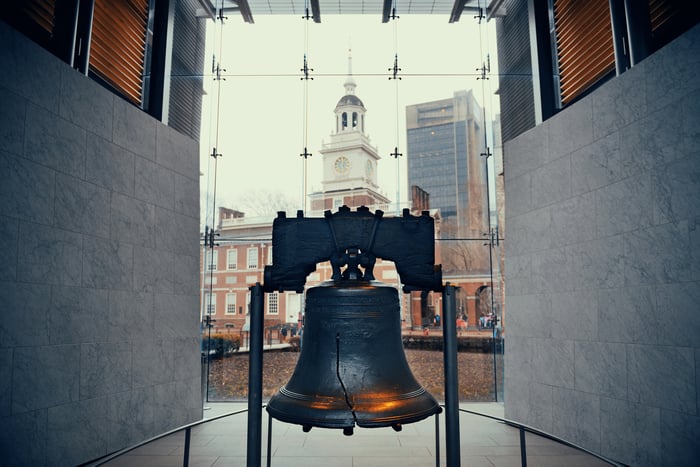History, nature, sports, and culture buffs will find a lot to like in Philadelphia, Pittsburgh, or in between.
According to one report, 34 of America’s founding fathers are buried in Pennsylvania. It was clearly a popular retirement spot at the time. If you’re thinking of relocating for retirement, you might want to follow in their footsteps and retire in Pennsylvania — whether near Philadelphia, Pittsburgh, or somewhere in between.

Image source: Getty Images.
The folks at Bankrate named Pennsylvania the seventh-best state to retire in. What’s so good about it? Well, like many states, it abounds in natural beauty and offers many outdoor recreation opportunities — for hiking, biking, camping, skiing, golfing, and more. It also features cities, with myriad cultural and sports offerings. (Go, Steelers! Go, Phillies!)
Healthcare costs and accessibility are important considerations for retirees, and Pennsylvania scores fairly well on this measure, ranked the 22nd-best state in the nation for elderly healthcare by MedicareGuide.com. Taxes are important, too. Pennsylvania is one of the 41 states that do not tax Social Security benefits. In fact, it doesn’t tax any kind of retirement income — not pension income, not withdrawals from 401(k) and IRA accounts, nothing. The state has no estate tax, either, though it does have an inheritance tax.
The weather will be a draw for many retirees, with a climate less hot than Florida or Arizona, though it can still get quite hot or cold at times. The cost of living should be a plus, too, coming in right around the national average. (Move to some parts of Pennsylvania from a costly region such as greater Boston or Seattle, and you’ll feel a real difference.) Housing costs are particularly low. The typical home price in Pennsylvania was recently only $271,911 — about 75% of the national average. Car insurance, though, averages $2,532 annually, $485 below average.
If Pennsylvania is sounding intriguing, dig a little deeper into it and perhaps try living there for a few months to see if it’s a good fit for your retirement plan.

